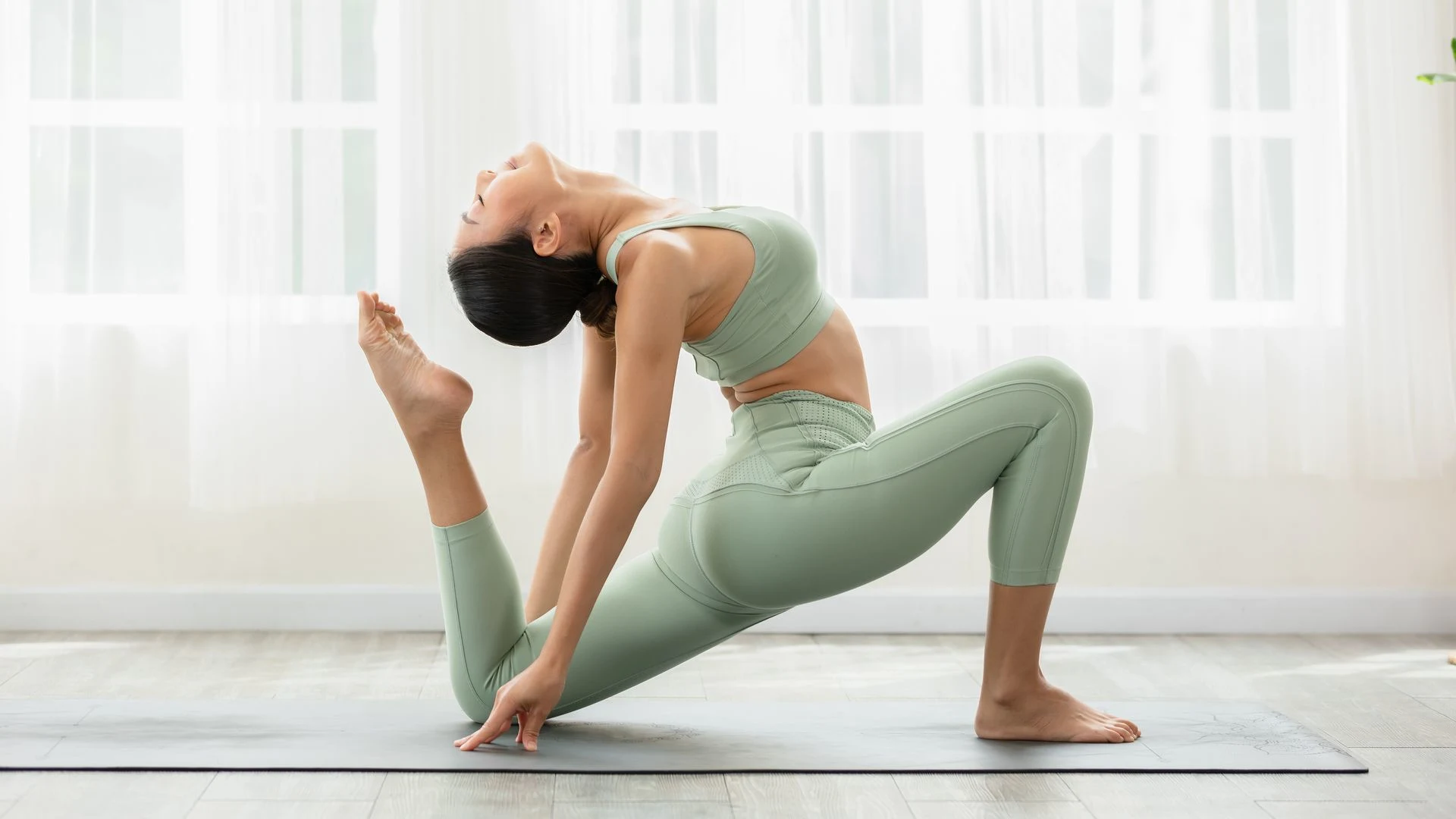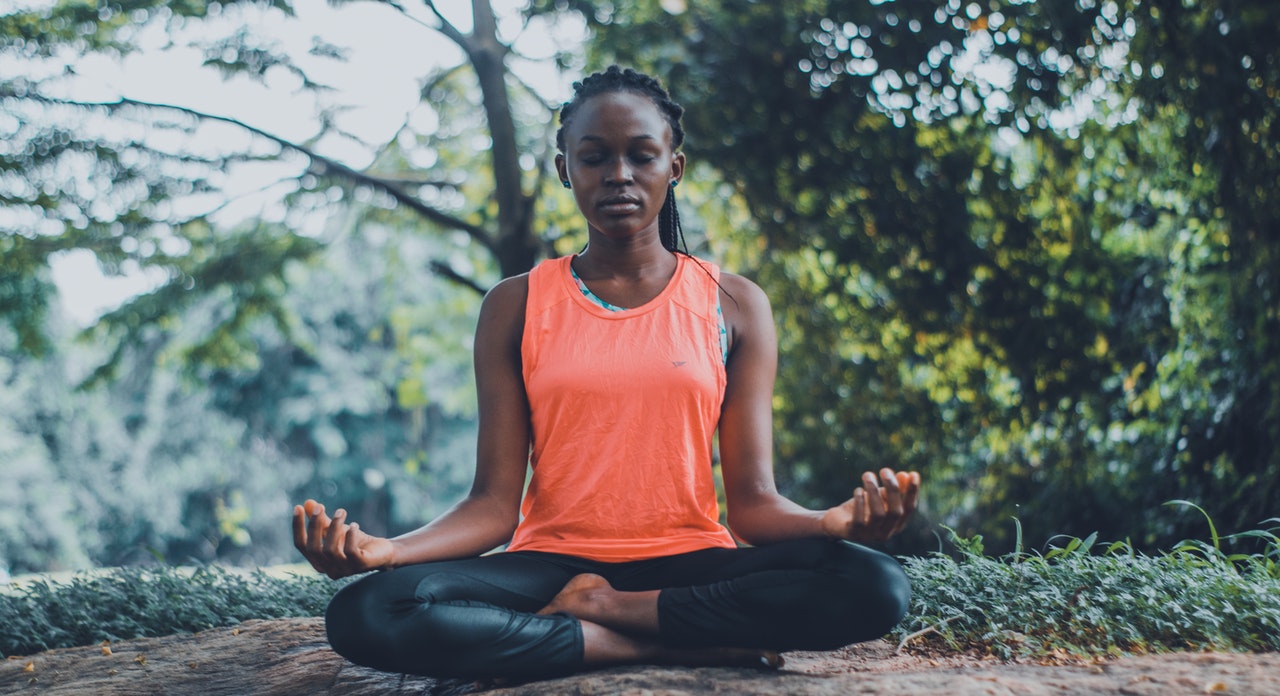
Yoga, an ancient practice originating from India, has gained widespread popularity across the globe for its numerous physical and mental health benefits. While yoga is beneficial for people of all genders, it holds particular significance for women due to its ability to address various aspects of their well-being.

One of the primary benefits of practicing yoga is enhanced flexibility. Regular yoga sessions involve stretching and holding poses, which gradually loosens tight muscles and increases overall flexibility. This flexibility not only improves physical performance but also reduces the risk of injuries.
Contrary to common misconceptions, yoga is not just about flexibility; it also builds strength. Many yoga poses require engaging multiple muscle groups simultaneously, leading to increased strength and endurance over time. Stronger muscles contribute to better posture and overall physical stability.
Yoga can be an effective tool for weight management. Dynamic styles of yoga, such as Vinyasa or Power Yoga, elevate the heart rate and promote calorie burning. Additionally, yoga cultivates mindfulness, making practitioners more aware of their eating habits and fostering healthier choices.

In today's fast-paced world, stress has become a prevalent issue, especially among women juggling multiple roles. Yoga offers a sanctuary from stress, incorporating breathing exercises and meditation techniques that promote relaxation and calmness. By reducing stress levels, yoga enhances overall well-being.
Regular yoga practice has been linked to improved mood and emotional well-being. The combination of physical activity, mindfulness, and deep breathing stimulates the release of endorphins, also known as "feel-good" hormones, which alleviate symptoms of depression and anxiety.
Yoga encourages mindfulness and present-moment awareness, allowing practitioners to declutter their minds and enhance mental clarity. Through focused breathing and meditation, women can cultivate a sense of inner peace and clarity, which positively impacts decision-making and cognitive function.

Yoga poses, particularly those that involve gentle inversions and twists, can help regulate hormone levels in women. Certain yoga sequences stimulate the endocrine system, which governs hormone production and balance. This hormonal equilibrium can alleviate menstrual discomfort and promote reproductive health.
For women experiencing chronic pain, whether due to menstruation, pregnancy, or conditions like fibromyalgia, yoga can offer significant relief. Gentle stretching and strengthening exercises incorporated into yoga practice can alleviate muscle tension, reduce inflammation, and improve overall pain management.
Many women struggle with sleep disturbances, often attributed to stress, hormonal fluctuations, or insomnia. Yoga promotes relaxation and enhances sleep quality through calming postures, breathing techniques, and meditation. Establishing a bedtime yoga routine can help women unwind and prepare their bodies for restful sleep.

A strong immune system is essential for women's health, helping defend against infections and illnesses. Regular yoga practice has been shown to boost immunity by reducing stress levels, improving circulation, and stimulating the lymphatic system. A healthier immune system translates to fewer sick days and a higher quality of life.
Instead of relying on caffeine or energy drinks, women can turn to yoga for a natural energy boost. Yoga sequences, especially those involving dynamic movements and deep breathing, increase oxygen flow to the brain and muscles, leaving practitioners feeling rejuvenated and invigorated.

Yoga promotes self-acceptance and body positivity, encouraging women to embrace their unique strengths and imperfections. As women progress in their yoga practice and witness improvements in strength, flexibility, and overall well-being, they develop a deeper sense of self-confidence and appreciation for their bodies.
The benefits of yoga for women extend far beyond physical fitness. From stress reduction and hormonal balance to improved mood and self-confidence, yoga offers a holistic approach to well-being that addresses the unique needs and challenges faced by women in today's society.
Q. Is yoga suitable for beginners?
Ans: Yes, yoga is suitable for practitioners of all levels, including beginners. Many instructors offer modified poses and variations to accommodate different skill levels.
Q. How often should I practice yoga to see results?
Ans: Consistency is key. Aim to practice yoga at least 2-3 times per week to experience noticeable improvements in flexibility, strength, and overall well-being.
Q. Can yoga help with menopausal symptoms?
Ans: Yes, yoga can help alleviate menopausal symptoms such as hot flashes, mood swings, and insomnia by promoting relaxation and hormonal balance.
Q. What should I wear to a yoga class?
Ans: Wear comfortable, breathable clothing that allows for ease of movement. Avoid overly loose or baggy attire that may interfere with yoga poses.
Q. Are there any age restrictions for practicing yoga?
Ans: No, yoga is suitable for individuals of all ages. However, it's essential to listen to your body and practice within your limits, especially as you age.
Disclaimer: SPIRITUAL DEVOUT claims no credit for images featured on our blog site unless otherwise noted. All visual content is copyrighted to its respectful owners.